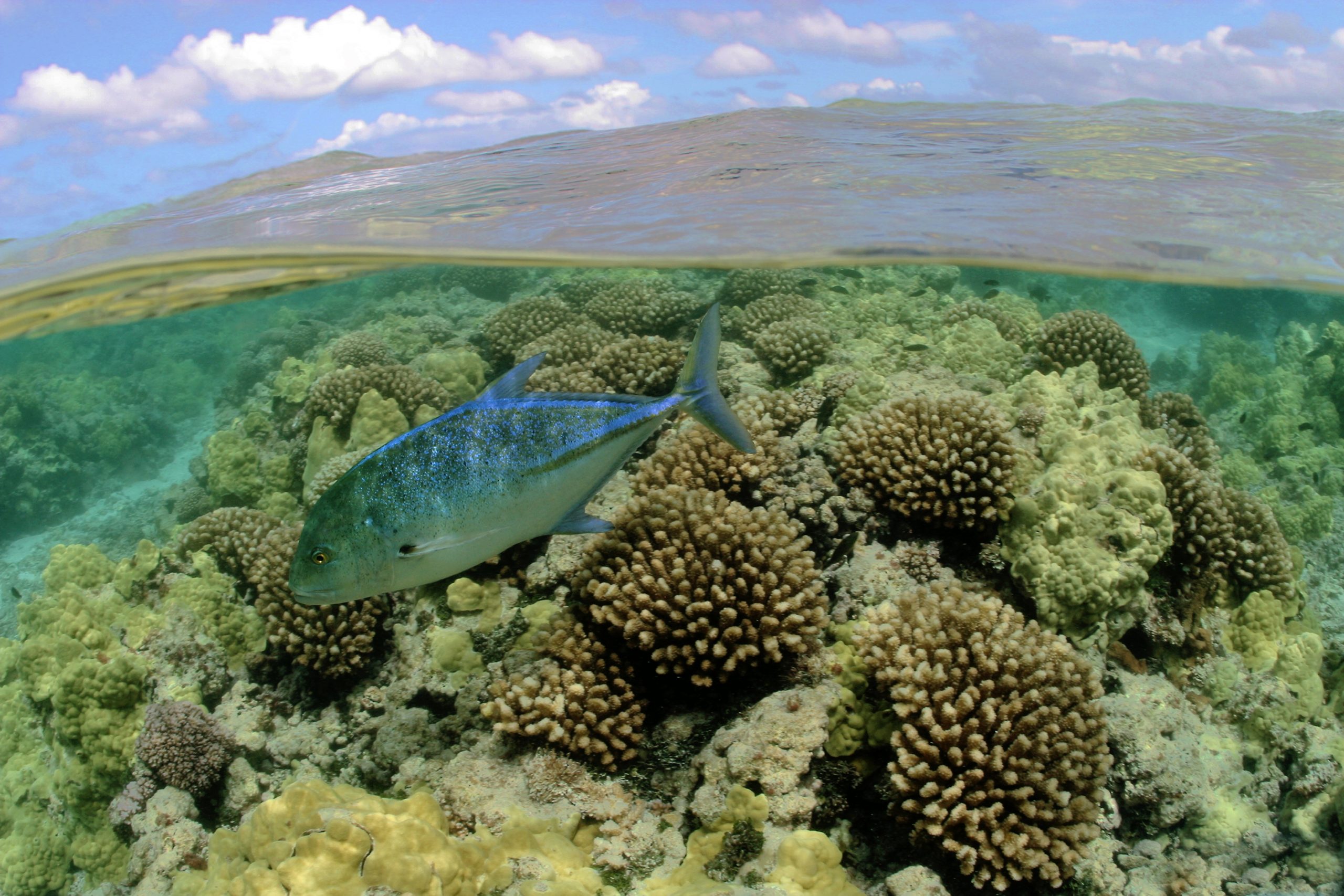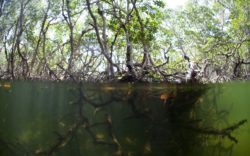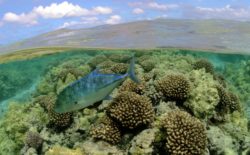
Gifts from the Sea
The holiday season is all about the spirit of giving. But did you know our ocean, and the species and ecosystems within it, give back to humans all year long? We receives many life-sustaining benefits from nature including clean air and water! Here are some examples of their generous gift-giving this holiday season:
Clean Water
Oysters are filter feeders that remove sediments, algae, and other particles from the water column as they push water through their gills to feed. The result? Purified water! A single oyster can filter several gallons of water per hour and nearly 50 gallons per day. When oyster populations are healthy, they can help prevent algal blooms, nutrient and sediment overloads, and other health problems for their ecosystems.

Mangroves in Florida Keys National Marine Sanctuary. Photo: David J. Ruck
Carbon Sequestration
Wetlands and mangrove forests trap and store carbon from the atmosphere as they produce food through photosynthesis. When we protect these coastal plants, the carbon they collect throughout their lifecycle stays in their plant fibers and out of the atmosphere and the ocean, preventing ocean acidification and climate change. These natural systems – comprised of seagrasses, salt marshes, and mangrove forests – are some of the most effective natural methods of storing carbon in the world and are an example of blue carbon. These areas also provide shelter for commercial and recreational fish species, support outdoor recreational activities, and protect coastlines from winds and storm surge.
Coastline Protection
Coral reefs are more than meets the eye, they also protect our coastlines from erosion, storm surge, and other threats. These massive natural structures are made of calcium bicarbonate (commonly known as limestone), making them sturdy and resilient against wave action and tides, and help block the loss of sediments like sand to the open ocean. Healthy coral reefs are a natural first line of defense for coastal communities all over the world. Bonus: they’re incredibly beautiful and they support an array of marine species!
Clean and Healthy Seas
Scavenger species like crabs, worms, shrimp, eels, sharks, and other animals that feed on decaying tissue, play an important role in the ocean’s nutrient cycle. Scavengers, through their digestive systems, transform the remains of larger animals like whales, turtles, and fish, into molecules and compounds their ecological communities can use. Marine scavengers also contribute to biodiversity and population health because they can feed on old, sick, or otherwise vulnerable animals and reduce the prevalence of disease.

Coral Reefs in Hawaiian Islands Humpback Whale National Marine Sanctuary. Photo: James Watt
Breathable Air
Phytoplankton, some of the world’s smallest plants, provide us with at least half of the oxygen we breathe. These microscopic organisms float near the ocean’s surface, collecting sunlight and carbon dioxide to create their body structures and sugars to feed themselves. A byproduct of their food production process is pure oxygen. Refreshing! These tiny plants also provide the foundation for aquatic food webs and help support life.
Nutrient Cycling
Whale poop isn’t what you might consider a gift, but it certainly is to the ocean and the many animals that call it home. Why? Because it is full of nutrients that help plankton and fish grow and support healthy food webs; doing so also helps plankton trap carbon from the atmosphere and mitigate climate change. Since whales are often migratory and travel up and down in the water column, they can transfer nutrients from rich areas where they feed to nutrient-poorer areas when they poop. Even when whales die, they continue giving back to the ocean! Their gigantic bodies sink – known as a whale fall – and the nutrients stored in their tissue serve as food for deep sea scavengers, where food isn’t always available. A single whale carcass also brings with it nearly 33,000 tons of carbon that are trapped in the deep sea instead of being released into the atmosphere.
There’s so much that ocean habitats and species do to help humans and the planet thrive. Let’s help them, too. Give back this season by pledging to make eco-friendly choices at home, support policies that recognize the importance of marine species, and protect their homes, including our national marine sanctuaries!
